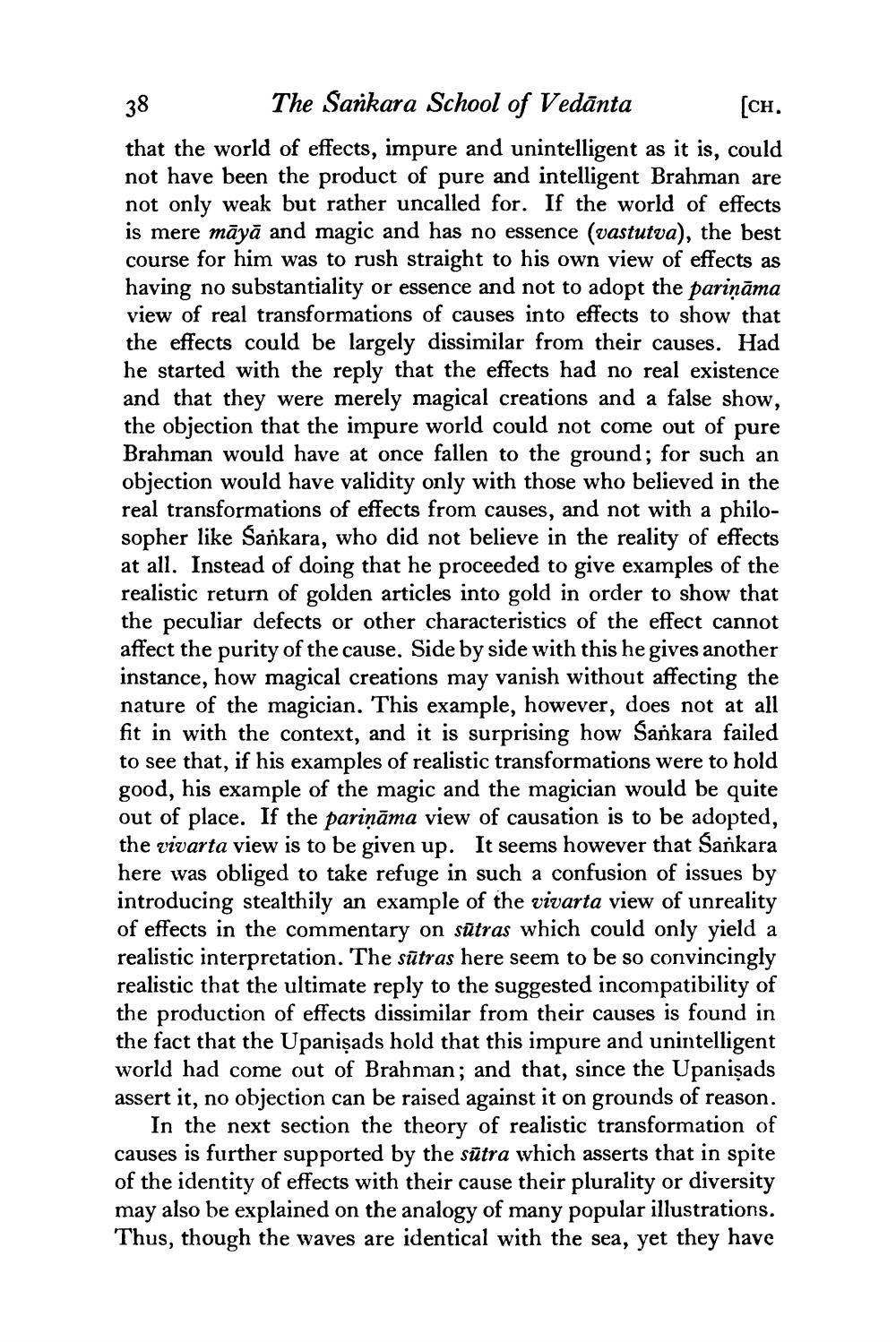________________
38
[CH.
The Sankara School of Vedānta that the world of effects, impure and unintelligent as it is, could not have been the product of pure and intelligent Brahman are not only weak but rather uncalled for. If the world of effects is mere māyā and magic and has no essence (vastutva), the best course for him was to rush straight to his own view of effects as having no substantiality or essence and not to adopt the pariņāma view of real transformations of causes into effects to show that the effects could be largely dissimilar from their causes. Had he started with the reply that the effects had no real existence and that they were merely magical creations and a false show, the objection that the impure world could not come out of pure Brahman would have at once fallen to the ground; for such an objection would have validity only with those who believed in the real transformations of effects from causes, and not with a philosopher like Sankara, who did not believe in the reality of effects at all. Instead of doing that he proceeded to give examples of the realistic return of golden articles into gold in order to show tha the peculiar defects or other characteristics of the effect cannot affect the purity of the cause. Side by side with this he gives another instance, how magical creations may vanish without affecting the nature of the magician. This example, however, does not at all fit in with the context, and it is surprising how Sankara failed to see that, if his examples of realistic transformations were to hold good, his example of the magic and the magician would be quite out of place. If the pariņāma view of causation is to be adopted, the vivarta view is to be given up. It seems however that Sankara here was obliged to take refuge in such a confusion of issues by introducing stealthily an example of the vivarta view of unreality of effects in the commentary on sūtras which could only yield a realistic interpretation. The sūtras here seem to be so convincingly realistic that the ultimate reply to the suggested incompatibility of the production of effects dissimilar from their causes is found in the fact that the Upanişads hold that this impure and unintelligent world had come out of Brahman; and that, since the Upanişads assert it, no objection can be raised against it on grounds of reason.
In the next section the theory of realistic transformation of causes is further supported by the sūtra which asserts that in spite of the identity of effects with their cause their plurality or diversity may also be explained on the analogy of many popular illustrations. Thus, though the waves are identical with the sea, yet they have




